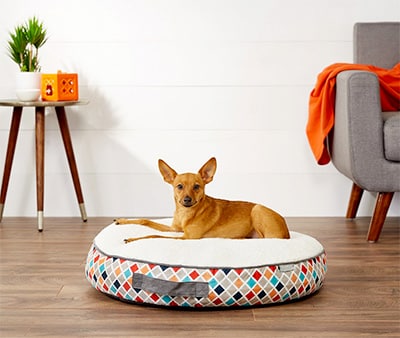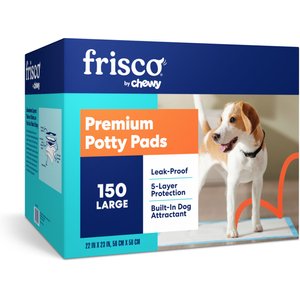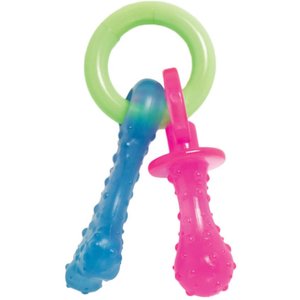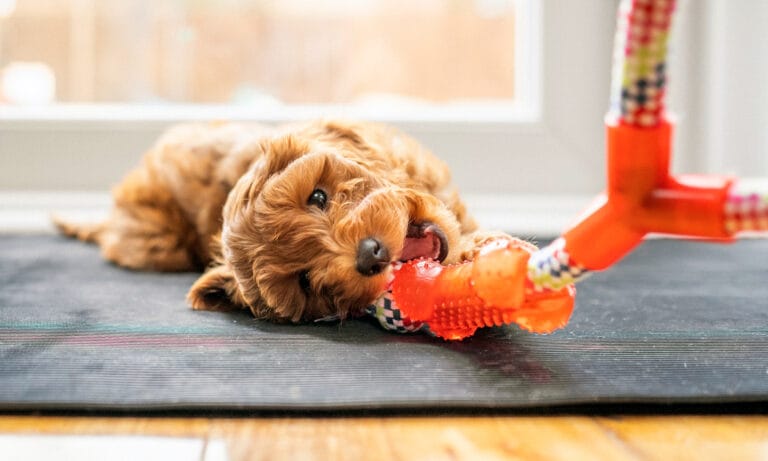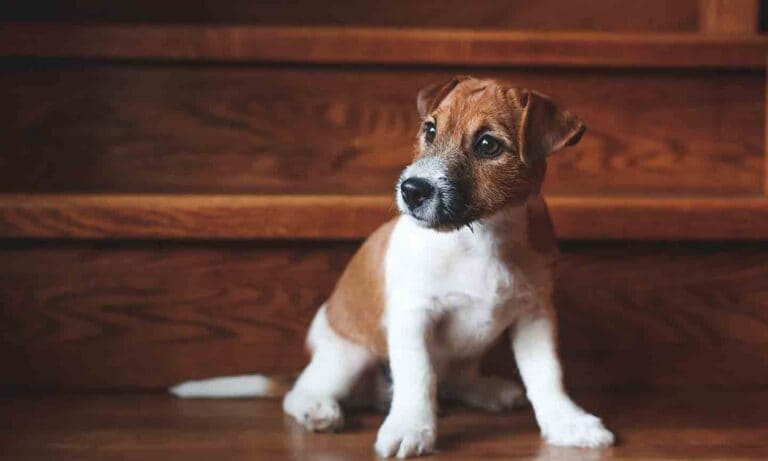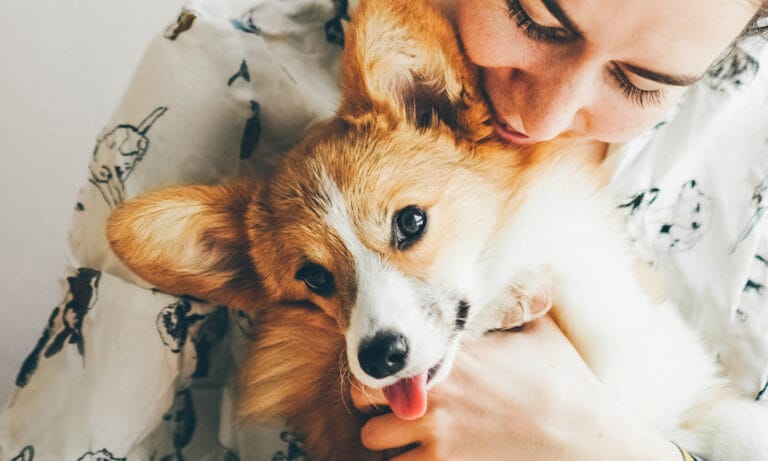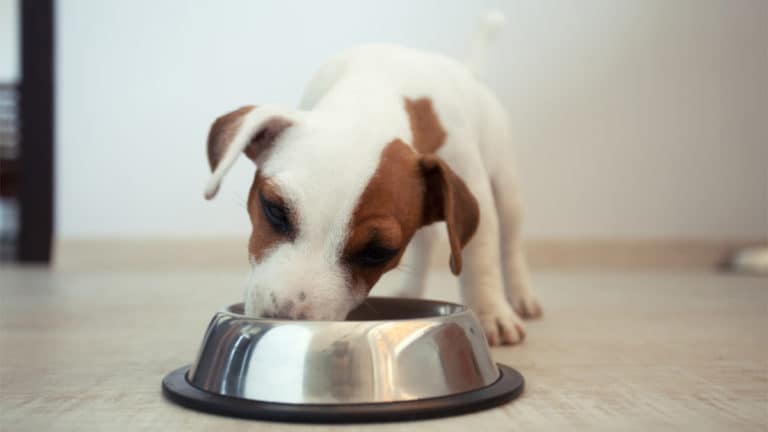There’s one fact about puppies that everyone knows—that they’re so stinkin’ cute! We’ve spoken with Dr. Amy L. Pike, DVM, DACVB, Chief of the Behavior Medicine Division of the Veterinary Referral Center of Northern Virginia, and discovered some facts about puppies that we couldn’t just keep to ourselves.
-
Their Normal Routine Is Sleep, Eat, Repeat
Is your newborn puppy sleeping a lot? Good news, it’s totally normal! “They will sleep much like a human newborn in terms of several hours at a time, wake up to nurse and then return to sleep very shortly after that,” explains Dr. Pike. Be sure to keep your new puppies cozy—after all, a puppy sleeping a lot deserves to snooze in a cloud of comfort. The Frisco Sherpa Lounger Circular Dog Bed is the perfect bed for your puppy to snuggle up in during this phase, and it will still provide a super-comfy resting spot for when she’s full-grown.
-
They’re Born in an Undeveloped State
Newborn puppies are born undeveloped, meaning that puppies are born blind and deaf with no teeth. During this vulnerable stage in their lives, they need to be cared for and fed by their parents. If you happen to be caring for newborn puppies that have been orphaned or rejected, you can feed them PetAg Esbilac Puppy Milk Replacer Powder. This formula is specifically made for puppies that are newborn up to 6 weeks old and will nourish them with all the protein, fat and carbohydrates they need for optimal development.
So, when do puppies open their eyes, start to hear and grow in some chompers? Dr. Pike states that they will “open their eyes around 13 days of age (give or take 3 days). This date varies based on the breed of dog. The ears canals will open around 18-20 days of age, and their first set of teeth will begin to erupt at 4 weeks of age.”
-
Puppies Will Lose Their First Set of Teeth
One of the biggest questions new puppy parents ask is, “When do puppies start teething?” Puppies can begin teething once their first teeth emerge, “but they will start losing that first set of puppy teeth, starting with the incisors, at around 3 and a half to 4 months of age. That is where the majority of the ‘teething’ is,” explains Dr. Pike. You should be prepared for when that teething peak comes, so your pup chews on toys, not furniture! Puppy toys that can do the trick are the Nylabone Puppy Chew Teething Pacifier Dog Toy and the KONG Puppy Teething Stick Dog Toy.
-
You Can Get a Paw Reading on Your Pup’s Size
Did you know that the size of your newborn puppy’s paw can help determine what size she’ll be full-grown? “The size of the dog’s paw can give you a rough estimate of the adult size of the dog, but it’s not foolproof,” says Dr. Pike. What this means is that they are only estimates, but “In general, the larger the paw, the larger the dog will be, because the paws will need to be able to support the large size of the dog’s body,” explains Dr. Pike.
-
Their Puppy Coat is Different From Their Adult Coat
“Puppies are born with a single layer of softer fur, which they will shed around 4-6 months of age as their adult coat comes in,” says Dr. Pike. This fun fact includes mostly all pups, except if you have a hairless puppy, of course. On top of that, you can expect the adult coat to be “thicker and coarser than the puppy coat,” explains Dr. Pike.
-
Earlier is Better When It Comes to Puppy Training
Puppies and training go hand in hand! Pet parents should ideally begin training when their newest additions are puppies. “Even 1-2 week old puppies can learn by simple association, despite the fact that they cannot even see or hear yet,” says Dr. Pike. It’s no surprise that pet parents are usually eager to potty train their puppies; most puppy parents can’t live without potty pads, training treats and odor remover spray.
Another thing to do early is puppy socialization; they should be socialized “to a variety of different people, animals, places, objects and more,” explains Dr. Pike. You should begin puppy socialization “during the critical time period between 3-12 weeks of age, when puppies are most sensitive to learning what is normal in their environment,” says Dr. Pike. If they are not socialized when they are puppies, they can “grow up to be dogs that are fearful of certain types of people or stimuli,” says Dr. Pike. Obedience training can also be done right away, like training your puppy sit, stay, come and off.
Of course, one of the most important facts about puppies is that they will bring your home so much love and joy. So, snuggle up with your newest addition and never forget just how special she is.

Lindsay Schencker, BeChewy Editorial Assistant
The moment Lindsay started her career here at Chewy, she hit the ground running in customer service; she knew that this is the company she wanted to grow with from then on. When Lindsay isn’t spending her time writing for BeChewy, she’s most likely binge-watching a Netflix series and cuddling up with her 80-pound fur baby, Dexter.
More Fun Facts
Share:

